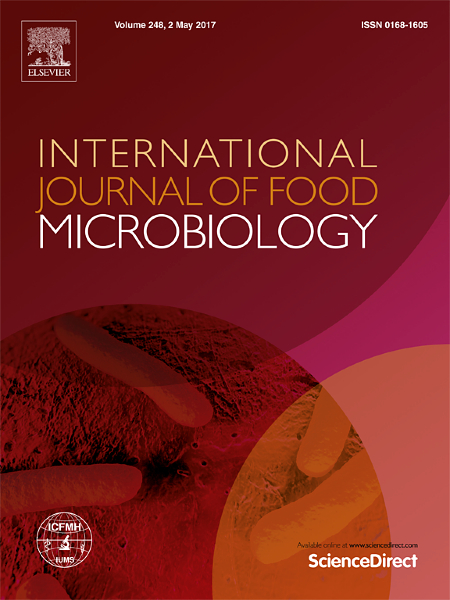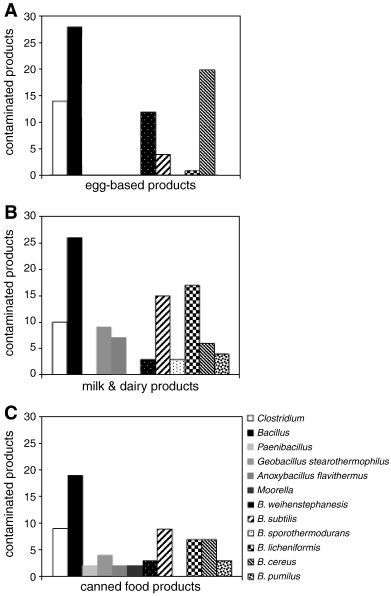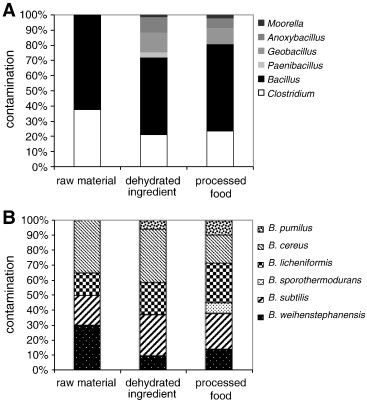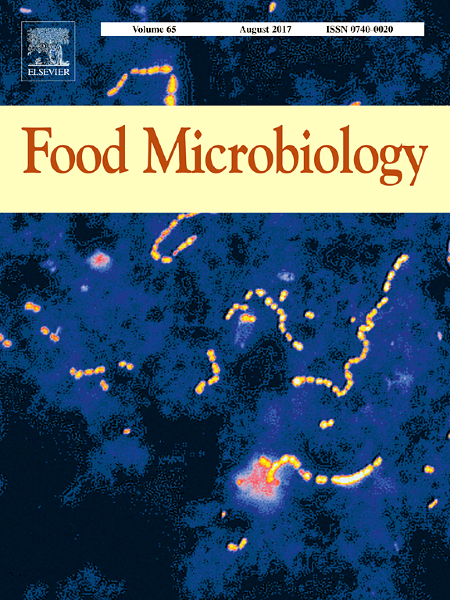The EuFooD-STA Webinar "Bacillus cereus from a food industrial perspective" took place 30 May 2017 at 3:00 PM CEST.
Sporeforming bacteria, they are ubiquitous in the environment and have the ability to form endospores that resist and survive the most extreme stress conditions such as temperature, pressure, biocides, radiations. Bacillus cereus gathers closely related Gram positive bacteria exhibiting highly divergent ecological and pathogenic properties. In food, their presence may be associated to both food poisoining or food spoilage leading high economical losses.
In most scenarios, Bacillus enter the industrial plants via spore contaminations of raw material or dehydrated ingredients and may persist in the environment. While spore is the resistant but dormant state of these bacteria, food deterioration is only due to pathogenic and spoilage strains that survive process, germinate and further grow in the food matrix which is no longer suitable for human consumption. Through various examples of case study, this webinar will be composed of 3 sessions to get up dated insights on the following industrial applications:
-Biodiversity: Which methods are used to address the diversity and distinguish phylogenetic groups?
-Germination and growth ability: What is the impact of environmental conditions (pre-, per-, post-treatment) on growth ability?
-Inactivation by processes: What is the biodiversity encountered on process efficiency?
Presenter:
Florence Postollec is project manager at ADRIA Food Technology Institute, Quimper, France. She was trained as biochemist and obtained a PhD degree on bacterial interactions at the Faculty of Medical Sciences in Groningen, the Netherlands. She gained experience on molecular microbiology when she joined ADRIA in 2005 as a post doc working on the detection and identification of sporeformers involved in food spoilage. Within the frame of a competitive technological cluster ACTIA UMT 14.01 SPORE RISK, she is collaborating with the Mafart Team on risks associated with foodborn sporeformer contaminants along a 10 years Research & Development axis. As a project manager in food safety and quality, she is particularly active in setting up projects, coordination between multiple stakeholders and results dissemination on the use of mathematical models to predict bacterial behavious to optimize process and adjust shelf-life.
Postollec F, Mathot AG, Bernard M, Divanac'h ML, Pavan S, Sohier D (2012). Tracking spore-forming bacteria in food: from natural biodiversity to selection by processes. International Journal of Food Microbiology 158:1-8.
The International Journal of Food Microbiology is a leading journal in food science with an Impact Factor of 3.445 © 2016 JCR. We welcome new submissions to this journal at https://www.journals.elsevier.com/international-journal-of-food-microbiology
Coroller L, Coton E, Postollec F, Sant’Ana A (2015). Spoilers, wonder spores and diehard microorganisms: new insights to integrate these super foes in food spoilage risk management. Preface Spoilers2013 special issue. Food Microbiology 45:1
Food Microbiology is a leading journal in food science with an Impact Factor of 4.24© 2016 JCR. We welcome new submissions to this journal at https://www.journals.elsevier.com/food-microbiology/




